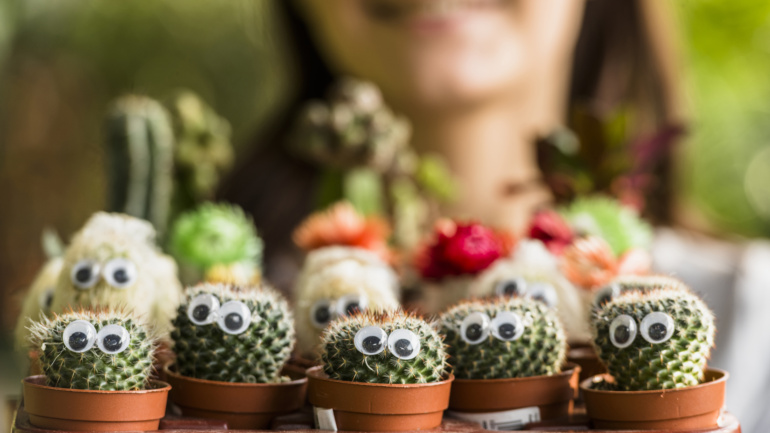Kafura Pelebe: The Yoruba Spice You Need to Know About
If you’ve ever found yourself scrolling through the endless world of herbs and spices, trying to make sense of all the exotic names and promises of health benefits, you might have stumbled upon something intriguing: Kafura Pelebe. Now, if you’re like most people, you probably scratched your head, googled it, and ended up reading a whole lot of nothing. But don’t worry. I’ve got you covered.
Kafura Pelebe might not roll off the tongue as easily as, say, turmeric or ginger, but this spice—whose name you’ll find in the Yoruba culinary and medicinal lexicon—is more than just a mouthful. It’s packed with history, cultural significance, and some seriously impressive benefits that might make you want to add it to your kitchen or medicine cabinet.
So, grab your spice jar, because we’re about to dive into the world of Kafura Pelebe, what it actually is, its English name (because let’s be real, it’s time to level up), how it’s used, and why it might just be your new favorite ingredient for health and wellness.
What Exactly Is Kafura Pelebe?
If you’re already familiar with Yoruba culture or cuisine, you might know that Kafura Pelebe is one of those things you either learn about from your grandmother or by stumbling across it at a local market in Nigeria. Kafura Pelebe is essentially cloves—yes, the same cloves that show up in your kitchen drawer, usually reserved for holiday recipes or spiced cider. But when it comes to Kafura Pelebe, it’s not just about the flavor; it’s about its medicinal and cultural importance.
In Yoruba, “Kafura Pelebe” is used to refer to cloves, the aromatic flower buds from the Syzygium aromaticum tree. These tiny, nail-shaped buds pack a punch in terms of flavor and benefits. However, in many African cultures, cloves aren’t just culinary wonders—they’ve been used for centuries as natural remedies and symbols in rituals. Cloves are also popular in traditional medicine, especially in places like Nigeria, where they are used for everything from treating ailments to enhancing the flavor of food.
What’s the English Name for Kafura Pelebe?
While it might sound like a word you’d use to cast a spell, Kafura Pelebe is simply the Yoruba name for cloves. So, next time you’re at the grocery store looking for cloves to add a kick to your soup or tea, you can confidently ask for Kafura Pelebe—though, you might get some confused looks unless you’re in the right market.
Kafura Pelebe (Cloves): The Benefits You Didn’t Know You Needed
Now that you know what Kafura Pelebe actually is, let’s talk about why you should be paying attention to it. Sure, cloves might seem like a humble spice, but trust me, its power goes way beyond just seasoning your rice or giving your mulled wine a festive flair.
- Natural Pain Reliever
One of the standout benefits of Kafura Pelebe (cloves) is its analgesic properties. For centuries, cloves have been used in traditional medicine to relieve pain—especially toothaches. The essential oil of clove contains eugenol, a compound known for its natural numbing properties. So, next time you’re dealing with a pesky toothache, a few drops of clove oil might just save you a trip to the dentist. (But let’s not get too carried away; always consult your healthcare provider.) - Boosts Digestive Health
Your stomach will thank you for incorporating Kafura Pelebe into your diet. The compounds in cloves help to stimulate the production of digestive enzymes, which aids in the breakdown of food. They’re also known to help with bloating, indigestion, and even nausea. A little Kafura Pelebe tea after a hearty meal might just be the remedy your digestive system craves. - Rich in Antioxidants
Cloves are rich in antioxidants, which are key players in the fight against oxidative stress and free radicals that can damage cells. These antioxidants help protect your body from diseases like heart disease, cancer, and diabetes, all while promoting overall health. So, adding a sprinkle of Kafura Pelebe to your daily routine might just be the little change your body needs to stay in tip-top shape. - Improves Respiratory Health
If you’re battling a cold or dealing with any respiratory issues, Kafura Pelebe might be your new best friend. Cloves contain properties that can help clear up congestion, reduce inflammation, and even alleviate sore throats. You can make a soothing tea with cloves and honey, or use clove oil in a steam inhalation to open up your airways. It’s like a spa treatment for your lungs. - Enhances Sexual Health
Here’s a fun fact: Kafura Pelebe (cloves) are also linked to improving sexual health and fertility. The spice is considered an aphrodisiac, and it’s been used traditionally in African and Asian cultures to boost libido and improve blood circulation. So, if you’re feeling a bit sluggish in the romance department, a little clove might just ignite the spark! - Blood Sugar Control
Recent studies suggest that cloves (and Kafura Pelebe) may help regulate blood sugar levels, making them a great option for people with diabetes or anyone looking to keep their blood sugar in check. The compounds in cloves help to improve insulin function, which can lead to better control over glucose levels. Talk about a tasty way to manage your health!
How Do You Use Kafura Pelebe?
Now that you’re convinced Kafura Pelebe is more than just a flavor enhancer, let’s talk about how you can incorporate this powerful spice into your daily routine. Don’t worry—it’s easier than you think.
- Kafura Pelebe Tea
One of the simplest ways to enjoy the benefits of Kafura Pelebe is by making tea. All you need is a few cloves, hot water, and honey (for sweetness). This tea is great for soothing a sore throat, improving digestion, and giving your immune system a boost. - Kafura Pelebe and Milk
Some people enjoy mixing Kafura Pelebe with milk to create a warm, calming drink. Add a few cloves to hot milk and enjoy it before bedtime. It’s said to promote relaxation and even help with sleep. Not to mention, the milk adds a creamy texture that makes the drink all the more comforting. - Clove Oil for Skincare
Clove oil can be used topically to help treat acne or improve skin health. Simply dilute the oil with a carrier oil (like coconut oil) and apply it to problem areas. It has antibacterial properties, which help fight the bacteria that cause acne, leaving your skin feeling refreshed and clear. - Culinary Uses
Of course, Kafura Pelebe’s primary use is as a spice. You can add cloves to stews, soups, rice dishes, and even desserts. Its warm, aromatic flavor enhances both savory and sweet recipes. Just a few whole cloves can add complexity to a dish, while clove powder can be used in spice blends or baking.
Are There Any Side Effects?
Like most powerful herbs and spices, Kafura Pelebe (cloves) should be used in moderation. Too much of it can cause irritation, particularly if you’re using clove oil directly on the skin. Also, while cloves are safe for most people, if you have a specific medical condition or are on medication, it’s always a good idea to check with your doctor before making clove a regular part of your health regimen.
Final Thoughts
Kafura Pelebe may not be a spice that’s front and center on every shelf, but it certainly deserves a spot in your pantry and medicine cabinet. Whether you’re using it for digestive health, as a natural pain reliever, or as an aphrodisiac, this humble spice is doing more work than you probably realize. So, the next time you see Kafura Pelebe or cloves on the shelf, don’t just pass them by. Embrace the benefits, and maybe even give it a try in your next dish or DIY remedy. After all, sometimes the simplest things are the ones that pack the most punch.


